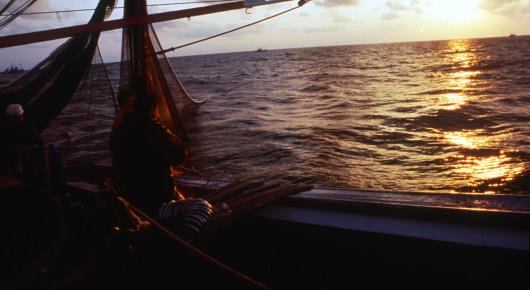Losses in fisheries and aquaculture tackled at Global Fishery Forum

The Global Fishery Forum, a key event in the fishing industry calendar, opened today in St. Petersburg with a strong presence from FAO.
For the first time, Russia is hosting an assembly of fishing industry professionals from around the globe.
FAO is represented at the forum by Abdellah Srour, Executive Secretary of the General Fisheries Commission for the Mediterranean and Black Sea, Nianjun Shen, Fishery Industry Officer, Nicola Ferri, FAO Fishery Officer, and Eugenia Serova, Director of FAO’s Liaison Office with the Russian Federation. The FAO team is participating in various sessions of the Forum, as speakers and moderators.
Food losses and waste in fisheries and aquaculture is a major emphasis for FAO at the Forum.
FAO estimates that 35 percent of fish and seafood is wasted, with 8 percent of all fish caught being thrown back into the water. In most cases, these fish are dead, dying or badly damaged. This waste is equivalent to almost 3 billion Atlantic salmon.
FAO estimates that 35 percent of fish and seafood are wasted,
with 8 percent of all fish caught being thrown back
into the water dead, dying or badly damaged.
Fish are lost along the whole value chain – in fishing, post-catch, processing, distribution, and consumption. This is a threat for sustainable development of fisheries and aquaculture, FAO says, and could jeopardize the future of global food and nutrition security.
“Losses in fisheries and aquaculture are a serious breach of the Code of Conduct for Responsible Fisheries, Article 11,” said FAO fishery officer Nicola Ferri. “It also amounts to lost opportunities for food and nutrition security, trade, and income generation. It impacts food security in four dimensions: availability, access to food, stability of supply, and utilization of safe food.”
In more affluent economies, according to FAO analysis, more than 40 percent of losses are at the retail and consumer level. Developing countries, on the other hand, encounter the problem in primary production and processing.
In 2011, FAO launched the Corporate Global Initiative on food losses and waste reduction (also called SAVE FOOD). Its Fisheries and Aquaculture Department is supporting member countries as they elaborate and put in place national strategies, programmes and investment projects. These efforts are aimed at improving food security and nutrition, generating income and minimizing negative effects on natural resources and the environment.
“Marine food resources must be available for the future generations,” said FAO’s Serova, “and this is directly related to working out a new model of sustainable development for fisheries and aquaculture. At present, we are witnessing trends such as fish and seafood depletion and reduction of biodiversity. Some 35 percent of the catch is lost. Illegal, unreported and unregulated fishing remains a grave problem.
“This undermines the sustainability of fisheries and aquaculture,” Serova continued, “and consequently endangers the achievement of Sustainable Development Goal No. 2: Zero Hunger by 2030.”
14 September 2017, St. Petersburg, Russia
